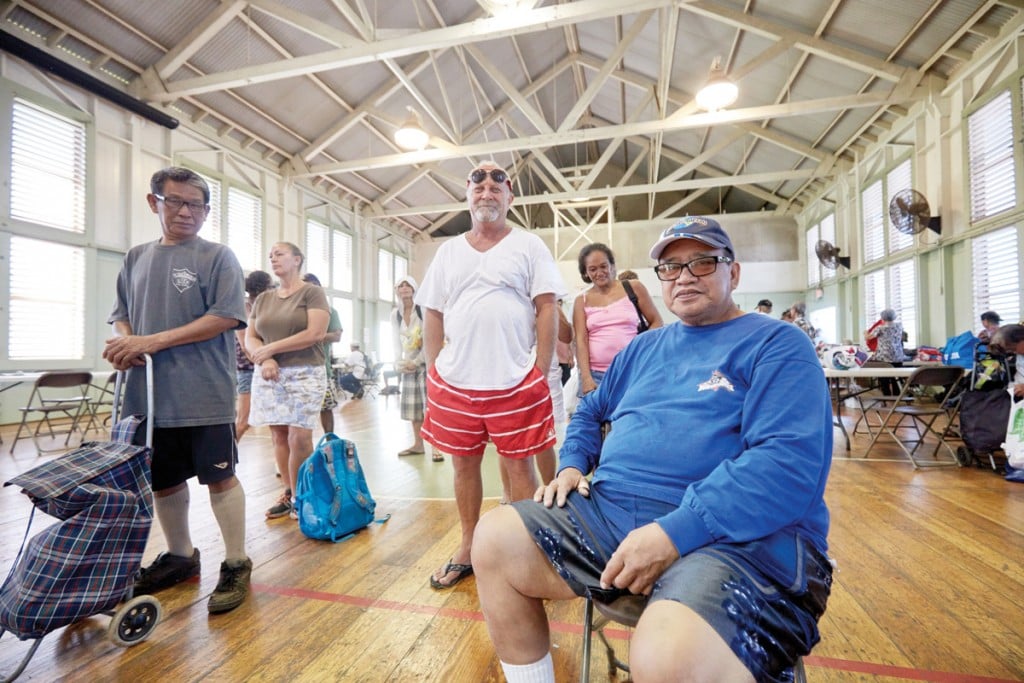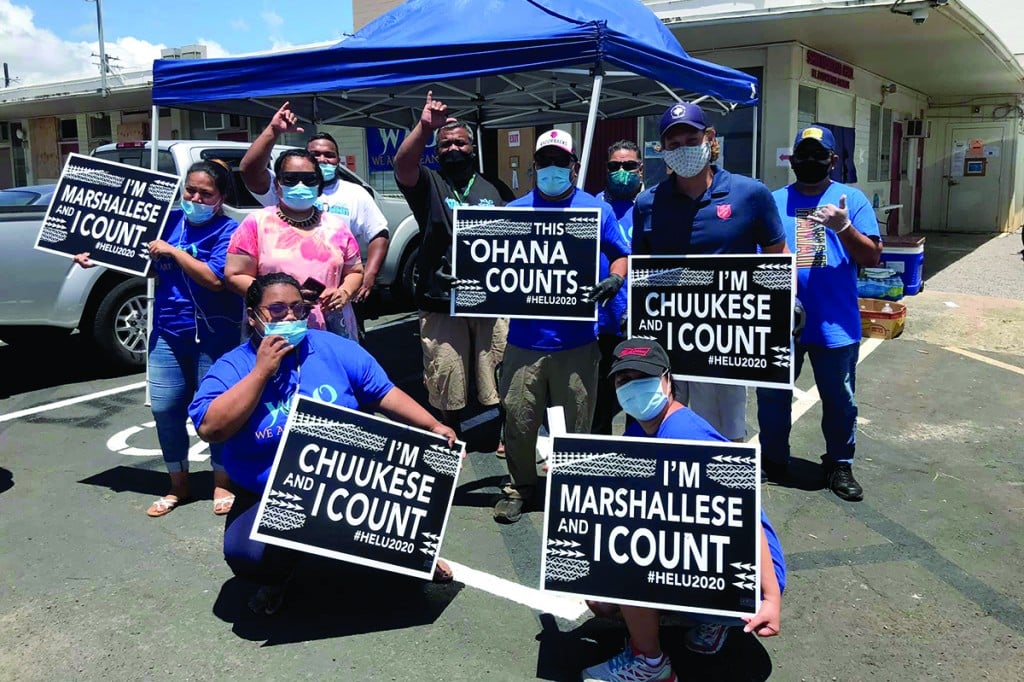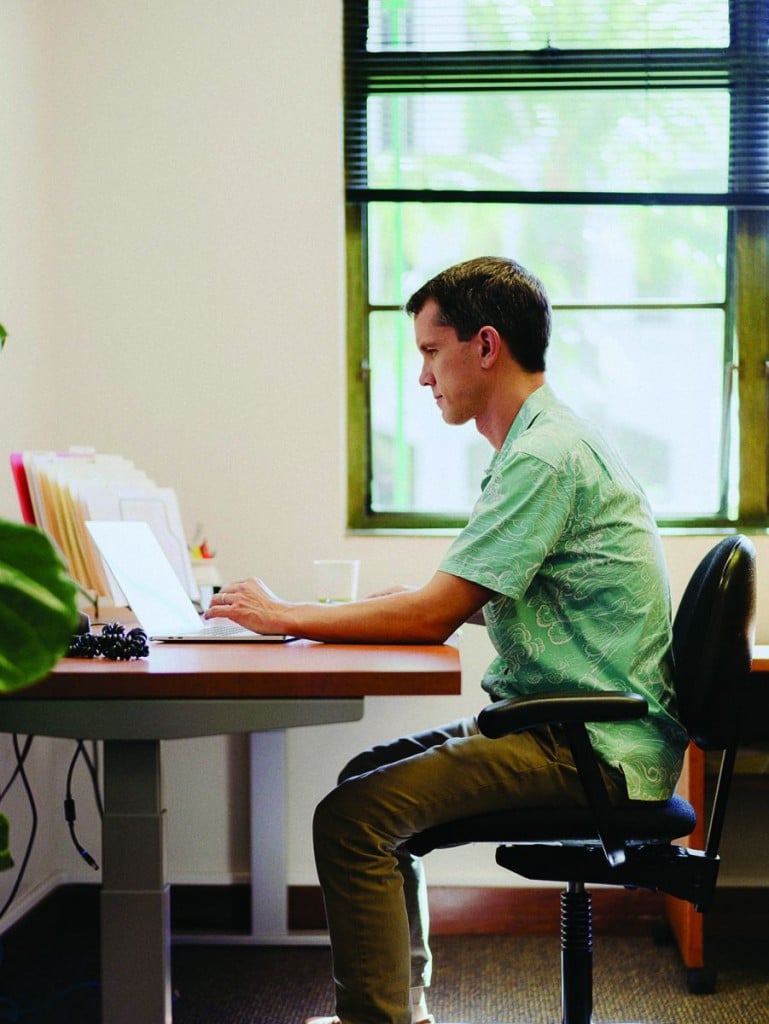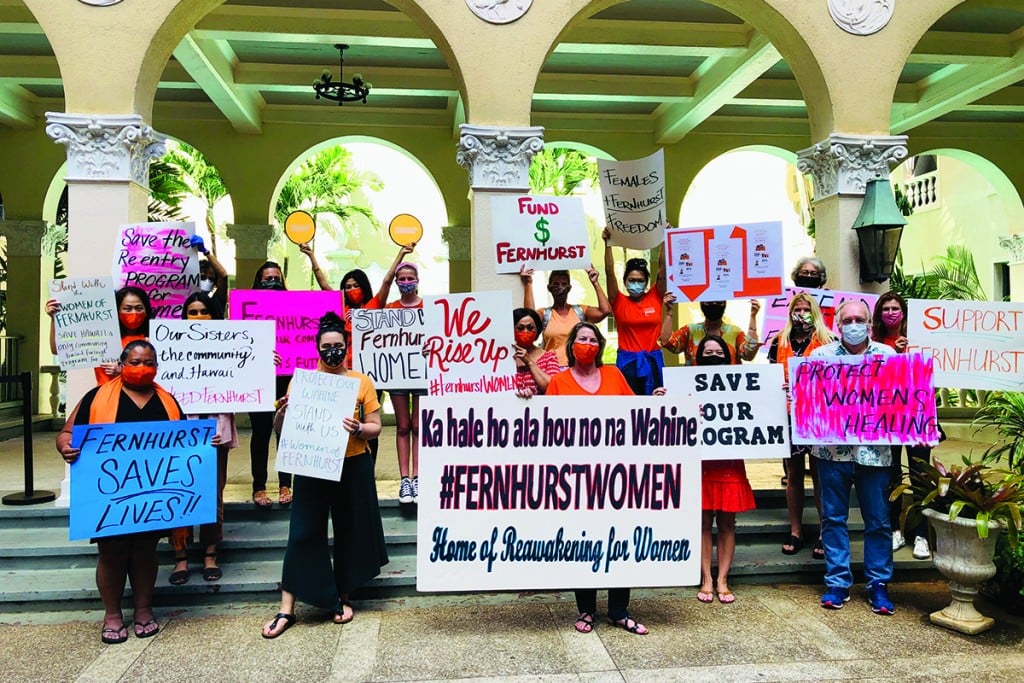Doing the Work: The Institute for Human Services
Bringing hope and community; making all of us better.

It’s never just
one thing.
It’s never just
one person.
“The answer is so much more than housing. It goes deep.
We have to look beyond simply finding a home.”
-Connie Mitchell, The Institute for Human Services
“There was this gentleman, homeless and not working because of his health needs,” recalls Connie Mitchell, executive director at the Institute for Human Services. “He came to see us, and over time got healthy and began volunteering with some of our programs.” She pauses as her voice quivers. “He helped out at Kahauiki Village and was good at it. Soon he was living there. Now he’s on their staff.
“To see them blossom, to see the work we do culminate in something like that, that’s why we do it,” she says.
Mitchell brought extensive experience in health care and mental health services with her when she took the IHS helm in 2006. She’d been a nurse, held a master’s in mental health psychiatric services, taught mental health nursing at UH, done financial planning and pastoral counseling, and worked at the Hawaii State Hospital. And still, she admits the task was herculean then, and even more so today.

“If we don’t look upstream, we’ll never have a handle on this,” she says, pointing to community engagement, risk factors and the increasing difficulties families face just getting by. While the notion of homelessness usually focuses on those living on the street, Mitchell points to the other half of her population also at risk: those who aren’t on the street yet but could be soon without intervention. They’re “people who are trying, working and still just getting by. Maybe they get behind on rent and can’t make it up,” she says. “Most people don’t realize how close they are to that world.”
IHS helps close to 10,000 people annually, including those living on the streets and those facing despair, including families and children. Their volunteers (almost 3,300) and staff (212) know the statistics and risk factors too well: children who grow up homeless will likely be homeless as adults, and the longer people live on the streets, the harder it is to help them.

Like most human service organizations, they’re known for only a small slice of the work they do. Crisis hotlines field calls every day, from families facing eviction to homeless people in crisis to concerned citizens trying to help loved ones or even strangers they meet on the street. Their outreach workers get to know each of their clients, tailoring solutions to each individual’s circumstances. Their shelters include specialty homes for families and veterans and those with mental health issues, substance abuse, and in need of medical respite. These specialty homes are in addition to their three main shelters. Partnerships with other human services organizations, hospitals and community groups keep the reach wide; meanwhile, IHS pop-up services address specific needs wherever they are, whether where meals are served or at job fairs or parks, where the work seems endless.
Even with all the work—and all their progress—Mitchell knows so much more is needed. “People are becoming homeless faster than we can help them,” she says. Maybe because of that, IHS is known as an early adoptor of national and even global ideas and strategies that work—everything from housing first and no barriers to innovative partnerships like Kahauiki Village.
“The power of community is everything,” Mitchell says. “It’s not just housing. It’s community.” She believes our island way of life—how we share this community together and find solutions together—is the key to moving forward. And yet, she worries. “I sometimes wonder if I can still run next door to borrow a cup of sugar,” she says. “We need to be more intentional about community, caring for each other, paying attention to each other.”
Their days are long, and yet their successes, their little victories, sustain them. They share all of them, with emails and shoutouts and high-fives every single day. It’s their antidote to burnout.
Mitchell admits it’s hard to meet the uninformed where they are sometimes, those who don’t understand the complexity of the issues and judge those living in crisis. “It doesn’t cost a lot to be kind, to give hope, to be there for someone without judgment,” she says. “I, by myself, can’t make a difference. It takes all of us.”


